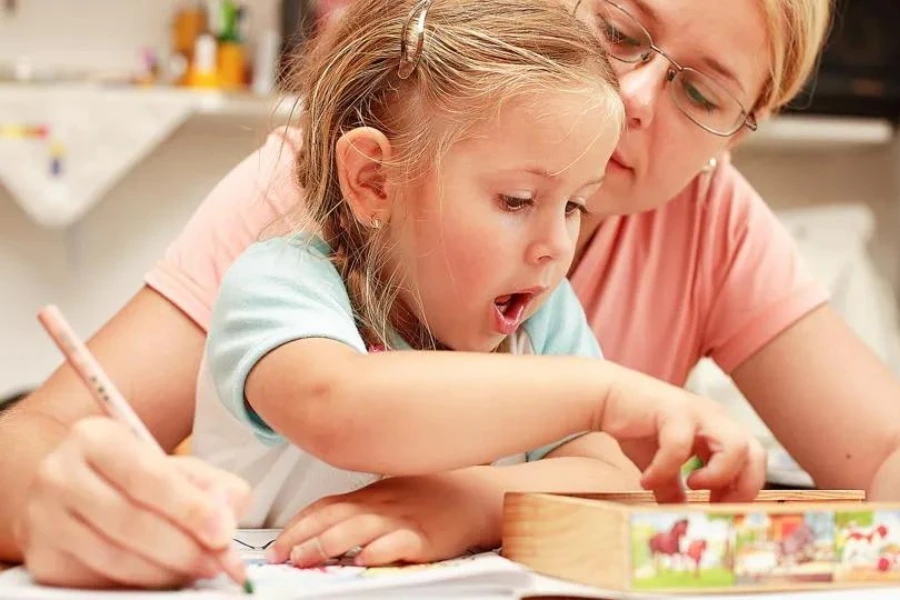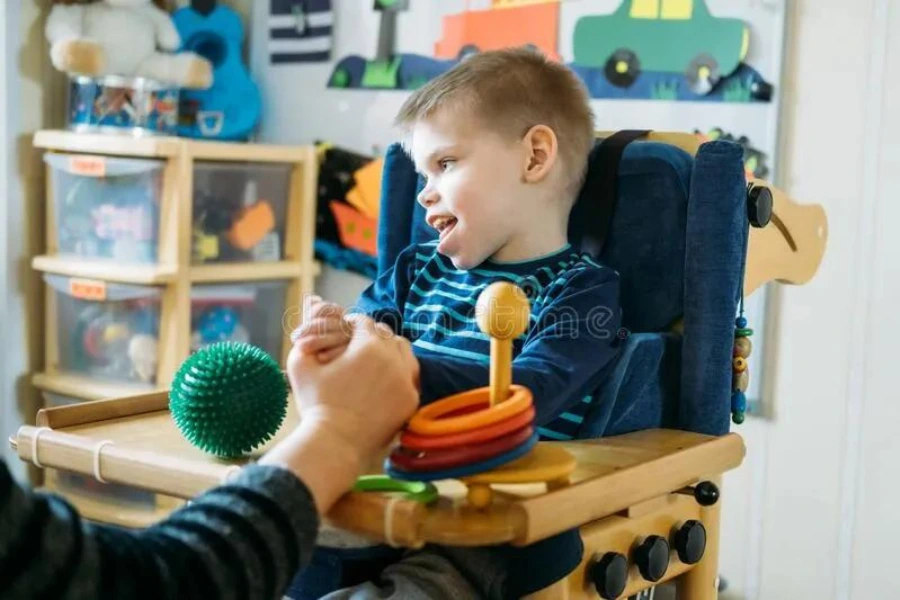
Source: leapfrog
The development process is a predictable process with a list of important milestones attached to every stage and the attainment of which is a sign of the child growing properly. Normal Developmental Milestones refer to the achievement of the developmental milestones as per their age. Developmental Milestones may seem as simple as turning your head, crawling or even moving your buttocks, but these milestones lay down the foundation for some of the most important gross and fine motor skills.
Although each child is unique and the pace of development is also exclusive, experts have a crystal-clear idea of the range of Normal Developmental Milestones during the Early Childhood age. Milestones are organized age-wise and range into various categories. So when your child hasn’t achieved the milestone and you feel something amiss, there can be a possibility of developmental delay that has to be catered to. Acting early on such issues can be a great decision on the part of parents.
For more details on the SEN Course Call/Whatsapp at +919321024137 / +919869866277
To download the brochure of the SEN Course, Click Here!
How do I Know if my Baby is Developing Normally
The Normal Development of the Child refers to the overall holistic progress of cognitive, physical, and socio-emotional domains of the child. When the child achieves the designated age-appropriate milestones the child is said to be developing normally. When the child doesn’t display the essential milestones of babbling, holding the head straight at
Signs of Normal Developmental Milestones
Below is a list of common child development, keep an eye out for these typical developmental goals:
Physical Development
- 0-3 months: Moves arms and legs actively, lifts head during tummy time
- 4-6 months: Rolls over, sits with support, begins to reach for objects
- 7-9 months: Sits without support, crawls, pulls up to stand
- 10-12 months: Stands alone, takes first steps, picks up small objects with fingers
Cognitive Development
- 0-3 months: Watches faces, responds to familiar voices
- 4-6 months: Explores objects with hands and mouth, shows curiosity
- 7-9 months: Understands cause and effect (e.g., dropping a toy and watching it fall)
- 10-12 months: Begins to imitate actions, looks for hidden objects
Social and Emotional Development
- 0-3 months: Smiles in response to people, makes eye contact
- 4-6 months: Laughs, recognizes familiar faces
- 7-9 months: Expresses emotions like happiness or frustration
- 10-12 months: Shows attachment to caregivers, may experience separation anxiety
Communication Development
- 0-3 months: Coos, reacts to sounds
- 4-6 months: Babbles, responds to their name
- 7-9 months: Uses gestures like waving, understands simple words
- 10-12 months: Says simple words like “mama” or “dada,” follows basic instructions
Important indicators when a doctor must be consulted:
When the baby has missed certain crucial milestones which results into very meagre progress this can be a sign to seek Guidance
If your baby is missing several milestones or seems to stop making progress, it may be helpful to check with a pediatrician.
Some signs to look out for include:
- No smiling or eye contact by 3 months
- Difficulty holding up their head by 4 months
- Not reaching for or interacting with objects by 6 months
- No babbling or response to sounds by 9 months
- Not attempting to stand or walk by 12 months
Trust your instincts as a parent. If something doesn’t seem right, early support can make a big difference in helping your baby reach their full potential.

Source: freepik
When Should you Worry About Your Baby?
Parents in general are quite inquisitive about the Child’s Growth when there is a certain amiss, parents are highly concerned. Sometimes it becomes tricky to identify if an issue is serious or is a result of something minor. However, several indicators do help to identify the same.
Listed below are some of the important indicators that hint that medical assistance is required.
Contact your baby’s healthcare provider if you notice any of the following:
Fever
- For children under 3 months, having a temperature above 100.4, needs medical attention
- If the fever lasts more than 2 days.
Breathing Problems
- Fast or labored breathing
- Any discoloration of the lips, face or skin.
- Continuous coughing or any signs of wheezing.
Rash
- Any rash that appears out of nowhere and spreads immediately
- Red, swollen, or infected-looking skin
Digestive Concerns
- Repeated vomiting, especially after feedings
- Not keeping any liquids down for more than eight hours
- If the child cries with very little or no tears at all, signs of a dry mouth.
- Child faces discomfort while passing stools or doesn’t pass stool for days making him constipated.
Eye Issues
- Red, swollen eyes
- Mucus or pus-like discharge from the eyes
Other Concerning Symptoms
- Constant ear pulling, which may indicate ear pain
- Unusual bloating in the belly
- Excessive crying that seems different from normal fussiness
- Signs of Serious Concerns
Seek immediate medical help if your baby:
- Is unresponsive, very drowsy, or difficult to wake up
- Feels floppy or has no energy
- Is very quiet and listless, even without a fever
- Has a rash that does not fade when pressed
- Shows any other symptoms that feel unusual or worrisome
You know your baby best. As humans and mostly as a parent we all have a gut instinct. If a certain indicator is not on the list, but you feel it can be an issue, seek guidance of a healthcare professional or your pediatrician immediately. It is always better to get your doubts cleared instead of stressing over it endlessly and risk a major issue.
For more details on the SEN Course Call/Whatsapp at +919321024137 / +919869866277
To download the brochure of the SEN Course, Click Here!

Source: istockphoto
How can I Improve my Child’s Development?
The Child Development Process has a list of significant milestones listed that must be achieved for the other major gross and fine motor skills to develop. When these milestones are not attained, parents can understand the signs that the child might be facing some issues that need to be addressed. In such situation parents can take the lead to make a difference in the child’s life by designing a happy inclusive rich environment at home and give the child plenty of learning opportunities strengthening his Normal Developmental Milestones areas.
Parents should take the initiative to gain thorough understanding of the issues that are concerned to their child by pursuing a Special Education Needs Course enabling them to offer impactful learning atmosphere. With the help of strategies and therapy knowledge Parents can ensure that the child is prepared to handle the diverse challenges of a regular classroom.
Listed below are ways parents can help the child’s progress and development through Special Education Needs Course:
Lay emphasis on Outdoor Physical Activity
- Encourage the child to sweat it out and engage in Physical activity for building strength.
- Create safe spaces for the child to help him move freely and explore.
Support Cognitive Growth
- Read books together to develop thinking skills.
- Engage in solving puzzles and games that are known to the child, that may include their favorite characters.
- Give them loads of different textured materials and objects to feel the texture and see the difference.
Promote Social Interaction and Inter-personal skills
- Be receptive to the child’s emotions and their opinions.
- Make an attempt to sensitize the family towards the child’s needs and encourage interactions between them and their peers as well.
Foster Language Development
- Talk to your child throughout the day, describing activities and objects.
- Sing songs and rhymes to enhance listening skills.
- Encourage them to express themselves, even with simple words or gestures.
Seek Early Support if Needed
If you notice delays in speech, motor skills, or social interactions, consult a professional. The best way to help your child is to know what the child’s needs are, what his areas of concern are and accordingly offer them the help through strategies and various other engaging activities.
For this the parent must undergo a proper Special Education Program through an eminent platform like Vidhyanidhi Education Society (Govt. Regd.), a pioneer Institute in guiding and enlightening minds to help children with special needs lead successful lives.
The course covers essential topics such as:
- Understanding learning disabilities and developmental delays
- Creating inclusive learning environments
- Strategies for behavior management and communication development
Enrolling in a Special Education Needs Course can have a big impact on helping a child grow and achieve their full potential. With the correct direction, support, and chances, every kid can develop excellent future talents, or their future.
Join Vidhyanidhi’s SEN Course today and transform your special education career!
For more details on the SEN Course Call/Whatsapp at +919321024137 / +919869866277
To download the brochure of the SEN Course, Click Here!
Normal Developmental Milestones
FAQs
At What Age is Having Kids Harder?
Due to lower fertility, greater pregnancy risks, and the increased energy requirements of parenting young children, having children after the age of 35 can be more difficult.
What are Red Flags in Child Development?
Delays can be detected through repeated behaviors, issues with walking, delayed speech, lack of eye contact, lack of reaction to sounds, and limiting social interaction.
What is Most Beneficial to the Development of Children?
Growth is supported by a caring atmosphere, dedicated caregiving, play-based learning, a healthy diet, social connection, and initial intervention if necessary.



